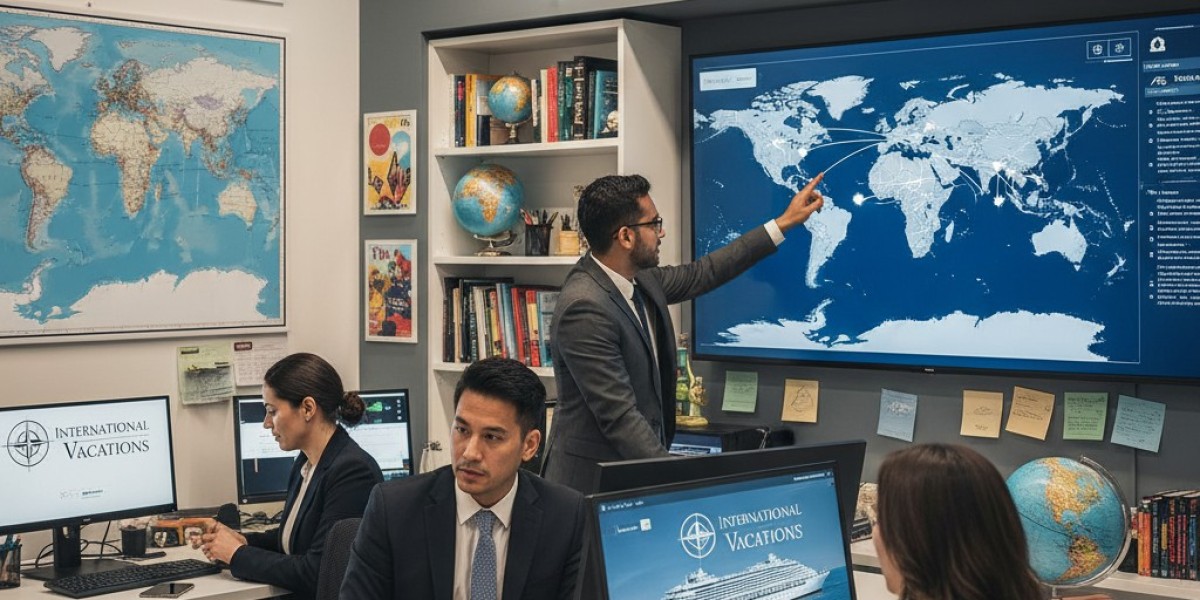How Do I Become a Travel Agent? A Step-By-Step Guide to Launching Your Career in Travel
Are you dreaming of turning your passion for travel into a rewarding profession? Wondering how do I become a travel agent? You're not alone. In today’s interconnected world, becoming a travel agent offers flexibility, creativity, and a genuine opportunity to help others experience the joys of exploration.
Below, we walk through the key steps to start your journey—from gaining foundational knowledge to building a thriving, independent travel business.
1. Understand the Role: What Does a Travel Agent Do?
A travel agent is more than just a booking clerk. You:
Curate personalized itineraries, handling everything from flights and accommodations to tours and travel insurance.
Act as a go-to resource for clients when disruptions or emergencies arise.
Cultivate relationships with suppliers—airlines, hotels, cruise lines, tour operators—to access exclusive rates and perks.
Stay informed about global travel trends, emerging destinations, technology updates, and regulatory changes.
This dynamic blend of customer service, logistics, and travel expertise makes the role rewarding, yet demands a mix of interpersonal and organizational skills.
2. Formal Training & Education: Your Launchpad
Although formal education isn’t mandatory, structured learning gives you a head start. Many industry programs are available that provide training, webinars, and resources designed specifically for aspiring travel professionals. These programs often include:
Weekly webinars and training sessions hosted by industry partners.
Personalized one-on-one support to build confidence.
On-demand webinar libraries so you can revisit key topics anytime.
An emphasis on “no experience necessary,” making it accessible for beginners.
Special benefits like advisor rates and familiarization trips (FAMs) to experience destinations first-hand.
Opportunities to attend tradeshows and live trainings to expand your skills and network.
3. Choose Your Path: Agency vs. Independent
There are two primary routes:
Joining an established agency or host gives you mentorship, backend support, and established supplier relationships.
Going independent means more control, flexibility, and entrepreneurial potential—but also more responsibility for marketing, accounting, and business operations.
Many new agents start under a host to gain support until they build confidence and clientele.
4. Gain Certification & Industry Recognition
While not always required, certifications lend credibility. Consider obtaining:
IATA (International Air Transport Association) certifications to access ticketing and airline commissions.
CLIA (Cruise Lines International Association) for cruise-focused specialization.
ASTA (American Society of Travel Advisors) membership for ethics, support, and advocacy.
Aligning with recognized industry bodies ensures professionalism and increases trust with clients.
5. Build Supplier Relationships & Expertise
Successful agents know their destinations and suppliers intimately:
Leverage FAM trips to experience resorts, cruises, or excursions firsthand.
Attend tradeshows and live trainings to make direct connections with suppliers.
Cultivate relationships with hotels, local tour operators, and airlines to access exclusive rates or perks for your clients.
6. Set Up the Business Essentials
Whether independent or within a host, make sure you:
Register your business as required by local or national regulations.
Invest in essentials—like a trustworthy computer, internet connection, booking technology, and a professional website or social media presence.
Use accounting tools to manage income, commissions, and expenses.
Consider insurance against liability or booking mishaps.
7. Build Your Brand & Clientele
Stand out by offering a niche or specialized service:
Hone in on markets like luxury travel, adventure tourism, family vacations, weddings/honeymoons, or even pet-friendly travel.
Create a brand identity—professional logo, website, social media profiles, and consistent messaging.
Generate content: travel blogs, destination guides, testimonials, or travel tips to showcase your expertise.
8. Provide Exceptional Client Service
Your reputation will drive referrals:
Be responsive, accommodating, and proactive with client communication.
Personalize every trip—consider interests, budgets, and special needs.
Offer support during travel—stay reachable if changes or emergencies occur.
Follow up post-trip—gather feedback, encourage reviews, and reward loyalty.
9. Commit to Lifelong Learning
The travel industry evolves rapidly:
Keep attending webinars, tradeshows, and live events to stay current.
Track global travel trends—like sustainable travel, digital nomadism, or changing visa regulations.
Continuously refresh certifications and expand your destination expertise.
10. Grow & Scale
Once you're established:
Expand your offerings—add group tours, destination weddings, or specialized experiences.
Collaborate with other travel agents to co-host trips.
Consider hiring assistants or building a small team.
Reinvent your model as needed—offer consultations, digital planning services, or affiliate partnerships.
Final Thoughts
To sum up, if you’re asking how do I become a travel agent, the answer lies in combining education, expertise, and exceptional service. Start with structured learning programs, pursue certifications, and build strong supplier relationships. Pair that with a customer-centric approach, and you’ll be well on your way to a successful career helping others explore the world.







